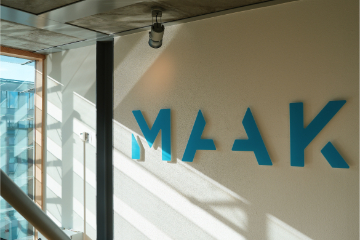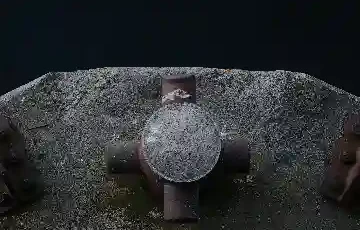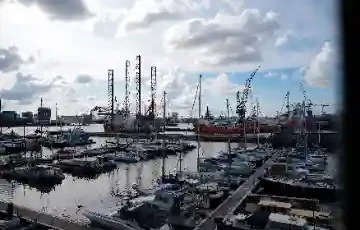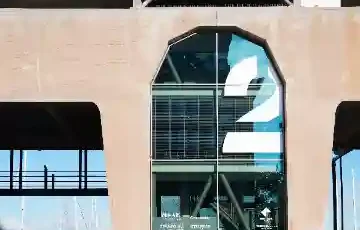
When is a trade Name protected under Dutch law?
Trade names under Dutch law receive protection through the Dutch Trade Name Act (‘Handelsnaamwet’) from their first commercial use, provided no confusion risk exists with older trade names. Protection arises automatically without registration – while Chamber of Commerce registration serves administrative purposes, it doesn’t automatically grant legal rights under Netherlands jurisdiction.
Legal protection under Article 5 of the Dutch Trade Name Act requires three conditions: your name must predate similar names, no strong similarity causing confusion may exist, and confusion risk is assessed based on business activities, location, and target audience. For example, an IT consultancy in Amsterdam receives stronger protection against similar names within the same sector than against a bakery with a comparable name. Therefore, timely legal action is crucial in trade name disputes under Dutch law.
Over 73% of Dutch entrepreneurs experience concerns about trade name confusion within their sector. Consequently, understanding when Netherlands Trade Name Act actually protects your business name against competitors using similar names is essential. Our Netherlands-qualified lawyer specializing in Dutch trade name law addresses the primary issues surrounding confusion risk for international businesses operating in the Netherlands.
What does confusion risk mean for business names under Dutch law?
Confusion risk occurs when the public cannot distinguish which company offers which products or services due to similar business names. Article 5 of the Dutch Trade Name Act specifically prohibits using trade names that are identical or strongly similar to older trade names of other enterprises under Netherlands jurisdiction.
However, the law extends beyond identical names. Dutch legislation also protects against trade names that differ only slightly from existing names. For instance, an Amsterdam law firm was forced to choose a new name because their selected name too closely resembled an existing firm. Consequently, even minor variations on existing names aren’t always permitted under Dutch trade name law.
Amsterdam practice example: An IT consultancy discovered a competitor using a strikingly similar name within the same sector. Despite minor spelling differences, the Netherlands court ruled confusion risk existed, requiring the later user to change their name. This demonstrates how Dutch courts rigorously protect established business names for companies operating in the Netherlands.
How does legal protection arise for your Dutch trade name?
Trade name rights arise automatically through first commercial use in economic traffic, not through Chamber of Commerce registration. This means Handelsregister registration serves only administrative purposes under Dutch law and doesn’t confer legal rights by itself.
Moreover, registering a trade name with the Chamber of Commerce without actual commercial use provides no legal protection under the Dutch Trade Name Act. Therefore, actual use of the name in your business operations is decisive for acquiring rights under Netherlands jurisdiction.
Ultimately, Dutch trade name law follows the principle “first come, first served.” Specifically, this means the first user of a trade name in a particular sector and region enjoys protection against later, similar names under the Netherlands legal system.
Which factors determine trade name infringement under Dutch law?
Netherlands courts assess confusion risk using three main criteria: the nature of both enterprises, their location, and the relevant public. Approximately 65% of all Dutch trade name disputes center on these factors under Netherlands jurisdiction.
Nature of the enterprise: Different sectors reduce confusion risk under Dutch law. For example, a fish shop in Amsterdam faces no issues with a masonry company using a similar name. However, within the same industry, such as two IT specialists in the Netherlands, confusion risk is significantly greater under Dutch commercial law.
Geographic distribution: Regional differences play important roles in Dutch legal assessments. Therefore, a company in Amsterdam can operate under the same name as a Groningen-based company, provided their service areas don’t overlap. Furthermore, online activities that cross geographic boundaries must be considered under Netherlands jurisdiction.
Relevant public: The target audience of both enterprises is crucial under Dutch law. Namely, no confusion risk exists when companies target completely different audiences, even within the same sector operating in the Netherlands.
When does extra protection apply to descriptive business names in Dutch law?
Descriptive trade names receive protection only when they have become established among the relevant public under Netherlands jurisdiction. In 2021, the Dutch Supreme Court ruled in a landmark decision that descriptive names enjoy the same protection as other trade names, provided they’ve acquired distinctive capacity.
This means extra caution is required for descriptive trade names like “Amsterdam IT Consultancy” or “Netherlands Software Solutions” under Dutch law. Consequently, it must be proven that the public recognizes the enterprise when seeing this descriptive name.
Various Netherlands courts apply stricter criteria for descriptive names under the Dutch Trade Name Act. For example, it must often be proven that the name has built certain market reputation before infringement claims can succeed under Dutch trade name law.
How does domain name protection differ under Dutch law?
For descriptive domain names, stricter requirements apply than for trade names under Netherlands jurisdiction: additional circumstances beyond confusion risk must exist. This rule was established in Dutch Supreme Court jurisprudence.
Domain names don’t fall under the Dutch Trade Name Act and lack separate legal regulation. Therefore, Netherlands courts apply the criterion of additional circumstances, such as misleading practices or profiting from others’ reputation.
Practical tip for international businesses: Always register your domain name before Chamber of Commerce registration. Ultimately, this prevents competitors from registering your desired domain after your business name becomes public in the Netherlands Handelsregister.
What legal steps can you take against trade name infringement under Dutch law?
Upon trade name infringement, you can file cease-and-desist actions, claim damages, and demand profit surrender under Netherlands jurisdiction. This can occur through expedited proceedings (kort geding). Approximately 34% of all Dutch trade name disputes are resolved through civil courts.
Cease-and-desist action: This is the most common legal remedy under Dutch law, forcing competitors to stop using infringing names. However, you must demonstrate actual confusion risk exists under Netherlands jurisdiction.
Damages: You can claim compensation for losses from trade name infringement under Dutch law. This may include lost revenue, reputation damage, or name change costs for businesses operating in the Netherlands.
Profit surrender: Furthermore, you can demand infringers surrender obtained profits under the Netherlands legal system. This is particularly effective when competitors knowingly profited from your established name.
How do you prevent trade name conflicts proactively under Dutch law?
Always conduct thorough research before choosing a trade name, both in the Netherlands Handelsregister and the Trademark Register. The Chamber of Commerce name checker shows approximately 95% of registered names, but a lawyer specializing in Dutch intellectual property can perform comprehensive trade name searches.
Consider trademark registration: Therefore, it’s wise to also register your trade name as a trademark with the Benelux Office for Intellectual Property (BOIP). This provides stronger protection than the Dutch Trade Name Act alone for businesses in the Netherlands.
International verification: For example, you must also check whether similar names exist among foreign companies active in the Netherlands. Consequently, an internationally operating competitor can still cause problems under Dutch jurisdiction.
Why is professional Dutch legal advice crucial for confusion risk?
Dutch trade name law requires specialized knowledge of intellectual property legislation and constantly evolving jurisprudence under the Netherlands legal system. As Amsterdam-based lawyers specializing in Netherlands intellectual property law, we handle dozens of trade name disputes annually for international businesses.
Each situation is unique and requires customized solutions under Dutch law. Therefore, it’s advisable to seek professional advice at the first signs of trade name conflict. Furthermore, we can help you proactively protect your trade name through strategic registrations and contractual arrangements under Netherlands jurisdiction.
Contact our Netherlands-qualified legal team today to secure your trade name rights and protect your international business interests in the Dutch market.
Netherlands Trade Name Law Specialist
Trade name confusion risk under Dutch law is highly case-specific. An experienced Netherlands-qualified lawyer in trade name law can provide comprehensive support for international businesses operating in the Netherlands.









